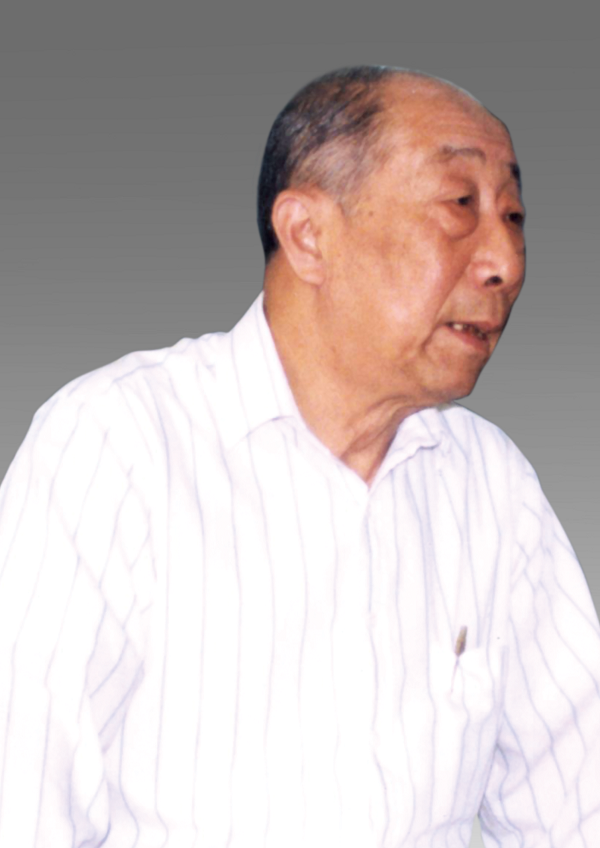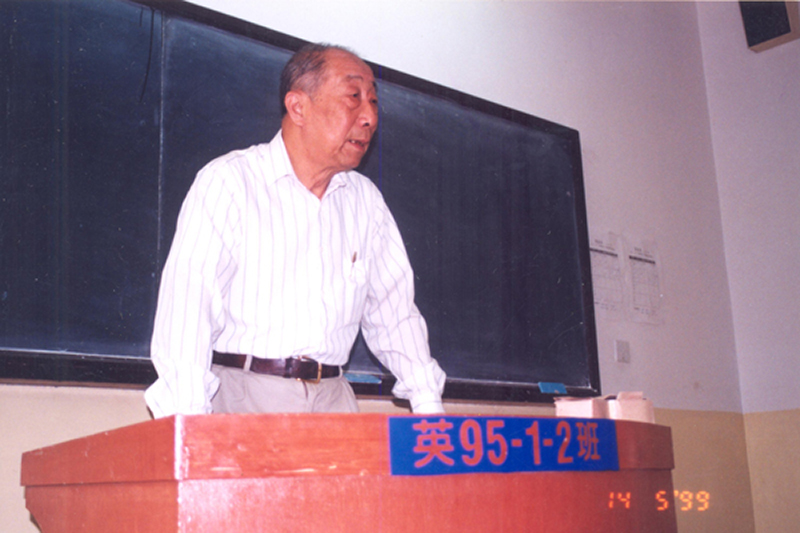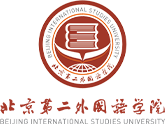

A photo of Wang Wenjiong [Photo provided by bisu.edu.cn]
Wang Wenjiong, born in 1929 in Nanjing, Jiangsu province, is a professor and expert enjoying special government allowance of the State Council. In 1950, he joined the Chinese People's Volunteer Army and went to the Democratic People's Republic of Korea (DPRK). In 1964, he went to work as a teacher in the English Department of the Beijing International Studies University. From 1980 to 1983, he served as a first-grade translator for UNESCO. From 1981 to 1988, he also worked as a staff writer of Ta Kung Pao, an English weekly magazine in Hong Kong. In 1992, he was awarded the title of Excellent Teacher in Beijing. From 1995 to 1997, he took the position of English translation consultant in the Foreign Languages Press. In 2005, he was awarded the title of Senior Translator by the Translators Association of China.
Listening and speaking go right before reading and writing
Beijing International Studies University was the first school in China to raise the concept that listening and speaking go before reading and writing in foreign language teaching. This was emphasized by Mr. Wang during his whole life of teaching the English language.
He once used the 1964 Hollywood movie My Fair Lady starring Audrey Hepburn as teaching material. He would select and record a video clip from the movie and played it in class to practice listening skills. He would replay it and remind students of details to pay attention to. The students then were requested to retell the whole story in English. He also adapted the Chinese novel Ban Ye Ji Jiao (The Midnight Rooster Crow) into English for the students to write down. Constant repetition in such an elaborately created language environment enabled the students to achieve great improvements through exercises.
Foreign language learning should be rooted in its culture
Mr. Wang said that language learning is about the culture of its origin country. He emphasized that language should not be separated from the culture it relies on and students should be in stock of more knowledge instead of just vocabularies.
Meanwhile, he emphasized the importance of Chinese proficiency in learning a foreign language. The more possession of Chinese culture, the better a person could master a foreign language. People with a good command of Chinese would be more sensitive to a foreign language. That was why he kept emphasizing the importance of Chinese learning which is the determinant factor in language learning.

Professor Wang Wenjiong in class [Photo provided by bisu.edu.cn]
For Mr. Wang, each minute he spent in class he valued as precious. The progress the students made would bring him consolation and pride. He compared this to his devotion to tree planting. He explained:“I plant trees and of course I would be pleased to see them grow. But they need patient care to grow.”

Links
